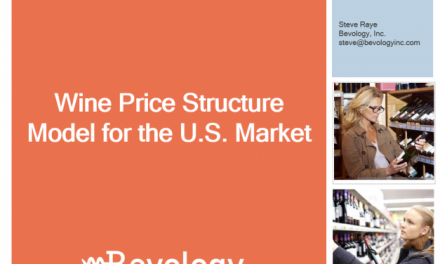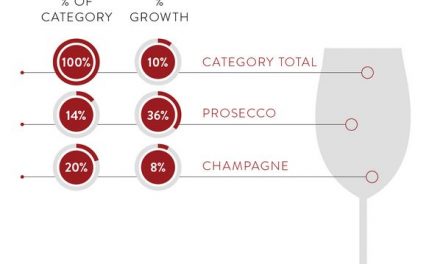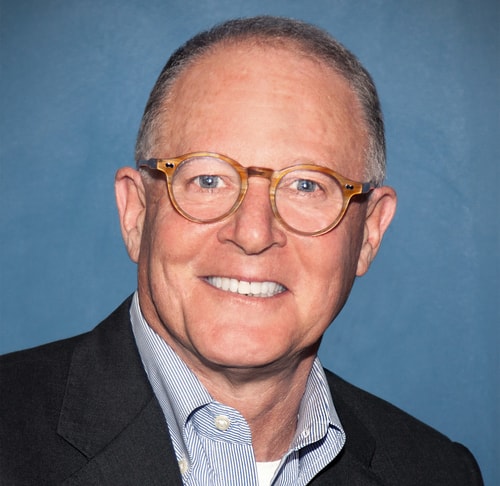Great speech by Ryan Opaz at the Winefuture conference taking place right now in Rioja. I couldn’t agree more with everything he says. Here’s the link to Catavino: www.catavino.com
When Robert Parker first started his newsletter in 1978, no one believed that an amateur outside the wine world could say anything worth listening to about wine. Then 1982 happened in Bordeaux, and Parker won the day. I may be simplifying a bit, but what he was responding to at the time was a problem in the fine wine trade with conflicts of interest and unscrupulous salesmen hawking plonk with fine wine labels attached. At the time the wine industry needed a shake up. It needed someone to step up and speak for the budding wine consuming public who wanted to understand and trust in the wine they purchased.
Using the simplest and cheapest method he had at the time to publish content with, he took a $2000 loan from his mother and a mimeograph machine with which he published the first issue of what we know today as the Wine Advocate. Struggling to find subscribers and make a living at it, his early days draw stunning parallels with today’s new wine media.
Today things again need a shakeup. For the past decades the everyday consumer has been ignored. I’m not talking about the high end or even weekend wine geek, but rather the consumer who likes wine, wants a better bottle and could give a shit if the wine has terroir or 90+ points. They want to enjoy the wine for what it is, social lubricant, and while in some cases this may lead to a new wine geek in training, it most likely leads to some sort of brand, or grape loyalty by an individual looking to unwind after a long days work.
The problem is retailers, importers, and the press were all trying to sell the same package of BS that you need to “know wine” to love wine. It’s the teach first drink later model, which I believe leads too often to consumers afraid that they might do something wrong, and as a result they end up simply buying based on price and what the label looks like. Why, because they are the only things not trying to tell them that they aren’t smart enough to enjoy wine. They were the only indicators of possible quality other than the advertisement hanging around the neck saying so and so thinks this wine tastes like some number.
Today things have begun to change. The consumer has choices, or is starting to, and the internet is bringing us these choices. Gary Vaynerchuck is one of these choices. I constantly hear wine professionals talk about how they can’t stand to listen to him, and they wonder if he knows what he’s talking about. “How can anyone listen to him scream like that?” is the common refrain. Truth is he could care less. We “the wine geeks” are not his audience. We have no value to him. We are observers, jealous that we didn’t see the millions of weekend wine drinkers who were looking for a new voice. Gary found those who didn’t care about wine in any significant way other than to know if it went with their pasta, or if they could woo the women that they were bringing home that night. He speaks their language, one that puts wine in the middle of life and does not try to separate it out.
What is happening now is incredible to watch, these weekend wine warriors, are beginning to care. They are beginning to listen, but they do it without the silly tasting terms that we traditionalists espouse. They do it in a way that makes sense to them and that they can relate to. They own this new conversation, and the internet is facilitating it. Yes there is crossover with the world of us self professed “geeks” but that is simply the grey areas you see in any discipline, where amateur becomes devotee. In the end these consumers now are talking about wine and buying wines, and are doing it with the tools they use to communicate within their social circles everyday.
Facebook, once a college meet up site, is now a place where brands are being built. Individuals can become “fans” of brands, and create groups for their favorite grapes. On the other hand Twitter, a seemingly ridiculous idea, 140 characters about what you are doing, has become a nexus point for sparking conversations and new ideas, not to mention a place where information about what wine to buy tonight is being searched out. No matter what you think of it, it is powerful, and important. (Photo from by vivancowineculture)
While in another more recognizable form for many of us we have Social tasting note sites like Adegga and Cellartracker which are allowing consumers to share online what wines they own and to see what their friends are drinking. These Social tasting notes are even more powerful when you look at the way that Google indexes them. Often times a wine searched for on Google leads a consumer to a social tasting note site, before they find the winery website for the wine (if it exists at all).
These simple internet based tools and networks are making significant waves in the wine world, and they are only now in their infancy? Take for example the AVIN a unique code attached to every wine in the world, similar to the ISBN for books. Today it is being converted to an open source project so that the whole wine industry can benefit from it’s utility and contribute to its success. A lot of people laugh at these online tools but it reminds me of a quote I found online: “This ‘telephone’ has too many shortcomings to be seriously considered as a means of communication. The device is inherently of no value to us.” This was Western Unions response to the telephones invention.
Ironically similar statements are being made about blogging today. The truth is that we are seeing the fading away of yesterdays’ tools of communication, giving way to a new way of looking at wine:
Today we again see the future.
Like before when people said Parker would never get anywhere, we hear the same voices today about blogging. So many misconceptions and falsehoods surround the world of blogging that I could spend the next two days dispelling them, and still not finish. This past week in Lisbon 120 bloggers, or “want to be bloggers” gathered for 3 days to talk about wine, the internet, and to taste and discuss wine. The line was blurred with mainstream reporters, pure bloggers, wineries, and PR types, all trying to learn more about this growing world. The reality is that blogs are today’s mimeographs, and even though anyone can start one, it takes talent and effort to make one work. There maybe thousands of blogs, but only a few that work hard enough to shine. It’s also true that we might not like what they are all saying, but how is this any different from today’s media where every town has multiple newspapers with contrasting loyalties. Smart brands will realize this, and are beginning to pay closer attention to them.
This is the future, some may even say the present. Go ahead stick your head in the sand, pretend it’s a silly fad and that it is just a “phase”. Truth is whatever the look of wine communication is in the coming years, it will be different from todays. Your choice is either to adapt and take advantage of the opportunities it offers, or you can sit there and complain, and let it pass you by.
Today’s consumers have voices. The internet have given them voices, And these voices are not your competitors or enemies, but rather clients, readers, buyers, and sometimes new friends.
Our job as wine writers and educators today is to make sure that these consumers are given good information and an opportunity to learn more.
Our job as wine producers and marketers is to learn how these new tools work so that you can join in the conversations that are going on. The conversations going on today are everywhere. Before these conversations stayed in peoples homes, at parties, in the bar down the street, spreading ignorance and falsehoods without a way to measure their influence, or a way to correct them. Today these conversations are online. They are searchable, they are contextual, they are everywhere. But most importantly they are offering you a chance to join in.
But the real truth is that the consumer is tomorrows critic. And in the end if they don’t know where Tempranillo comes from it doesn’t matter, they do know whether or not they like the wine. As a group they have an aggregated voice that is powerful and broad. These consumers may never be the educated WINE GEEKS we all wish they were, but they will be the ones to buy your products, and share their thoughts with their friends, just like they always have. If you do not listen to them…you lose. If you choose to engage with them…you win.
Remember Wine is a conversation. My favorite bottles have been shared with friends, late into the night, searching out the solution for all the worlds problems. At the time of opening these wines, points, varietal, terroir may have all been important, but as the last drop was drained all that mattered was the person I was sharing them with. The conversation, lubricated by the liquid we all love, is what I cherish most and the reason for opening the bottle. Today the internet is also a conversation. It is not monologue it is a dialog. If you are not prepared to engage and talk to your consumer, be prepared for disappointment. Today’s consumer wants a conversation…no they expect one.
Today you can drive your own sales, rather than waiting for the critic to do it for you. But only if your honest, open and real. The internet is not a place to sell BS, it’s a place to have a dialog…join in and you will win.
Thank you.
Ryan Opaz








